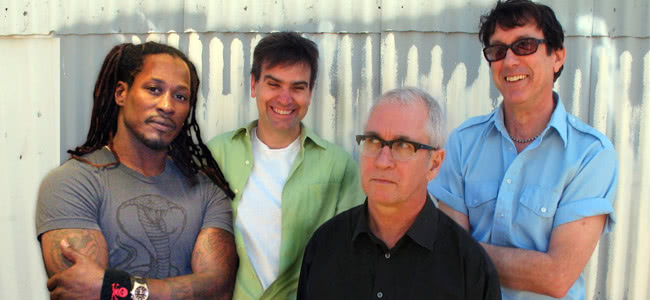Coming just after news that Google is planning to install a subscription based service to online video website YouTube, Dead Kennedys guitarist, Ray Pepperell a.k.a. East Bay Ray, has lashed out at at the service, and the Internet in general, claiming that “YouTube has forced 12,000 independent musicians out of work.”
Speaking at the SF MusicTech Summit last week, the disgruntled musician held court on a panel that also featured Incubus manager Steve Rennie, and Kristin Thomson from the Future Of Music Coalition, though they struggled to get a word in.
Based on his own creative calculations, East Bay Ray deduced that according to their revenue and the percentage they pay artists, YouTube has “siphoned money off” 12,000 artists, as Digital Music News reports; the guitarist stating “that’s 12,000 people that are now working in the salt mines of Walmart.”
His convoluted mathematics are as follows:
YouTube’s deal is they split it 55/45, 55 to the artist, 45 to them. But, it’s after expenses, and so after looking at the financial reports, Google’s basic expenses are 36 percent.
So, taking 36 percent off the top, it kind of works out that they are paying 35 percent, and taking 65 percent. So YouTube’s profit last year was about $1.2 billion, profit, and they paid out about $600 million.
So, if they had done the same percentage as say iTunes, 30/70 instead of 65/35, that’s a difference of about $600 million. Now if you take a middle class musician, say, $50,000 year, year in and year out, divide it into $600 million, that’s 12,000 people that Google has siphoned the money off.”
There is the argument – as HypeBot puts forward – that many musicians owe much of their initial success to exposure that was provided through the Internet to begin with, but Ray puts those stories down to luck, saying it’s “just like a casino.”
As reported in the SF Weekly, fellow panelist Rennie futilely challenged him, arguing that the way musicians make money today is forever evolving and “the music part of this equation – meaning the revenue equation – is not going to ever be what it was.”
Having a vast knowledge in the field, Thomson got little airtime other than to duly point out that this problem isn’t new and isn’t just a product of internet streaming, as MTV, “even in its golden era”, didn’t pay their musicians royalties either.
While Ray’s aggressive approach has sparked much criticism due to its lack of a factual basis, his concerns are valid. According to an NPR story last year, the Dead Kennedys had only received “a few hundred dollars” from YouTube despite their videos being watched over 14 million times. Ray was more humble in his knowledge on the matter then, admitting “I don’t know — and no one I know knows — how YouTube calculates the money.”
His concerns are echoed in those of high profile musicians who criticised the business model of Google – who owns YouTube – in an open letter to British Prime Minister David Cameron in July last year. Key industry figures such as Elton John, Robert Plant (Led Zeppelin) and Pete Townsend (The Who) criticised Google for allegedly helping users easily find pirated music by not blocking illegal sites, or for ignoring unlicensed content on YouTube.
Google has dismissed any accusations of supporting piracy, with Policy Manager, Theo Bertram stating last year, “It’s not for Google to go around the web judging what is or isn’t legal… but what our research shows is that… what would be much more effective is to go after the money – to remove the underpinnings, the advertising, the payment processes, from these sites.”
Perhaps as a way to combat this, Google are planning to launch a music streaming service with both a free and subscription-based option to compete with the other giants of the market like Spotify and Deezer.
The new as-yet untitled streaming service could complement the paid subscriptions that YouTube are planning on introducing this year, as reported in The Next Web last month, which will allow users access to watch specific content – such as their favourite TV show or clips and performances from artists – for a small monthly fee.

































